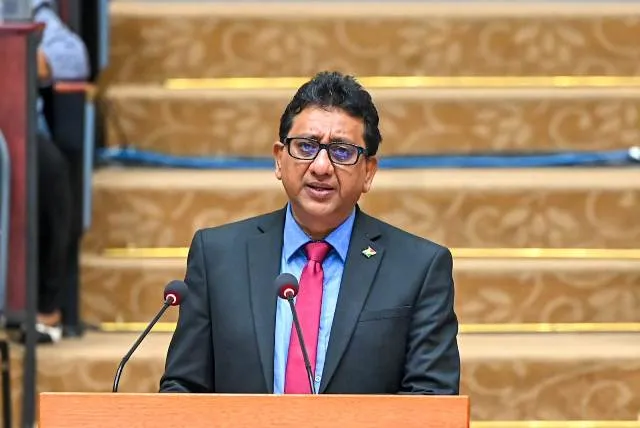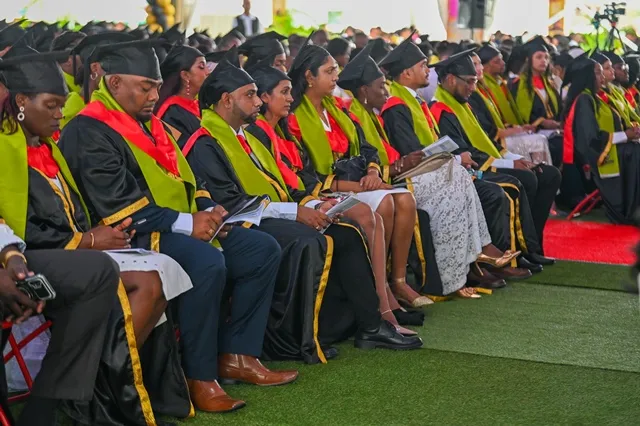Guyana’s Parliament on May 26 passed two landmark pieces of legislation aimed at strengthening regional crime cooperation: the CARICOM Arrest Warrant Bill 2025 and the Regional Security System (RSS) Agreement Bill 2025. Passed with unanimous bipartisan support, these measures aim to streamline fugitive apprehension and cross-border security operations across the Caribbean.
The CARICOM Arrest Warrant Bill creates a framework similar to the European Arrest Warrant, allowing a warrant issued in one CARICOM state to be executed in another without traditional extradition delays. Attorney General Anil Nandlall explained that this could reduce what is currently a years-long process to mere weeks or days, enabling faster returns of suspects.
“This ensures one standard of justice across our community,” said Opposition MP Roysdale Forde, citing past instances where suspects evaded justice by fleeing to nearby states.
How It Works: One Warrant, Many Borders
Once operational among participating countries, a CARICOM warrant issued in Jamaica, for example, will be enforceable in Guyana, Trinidad, or Barbados, without initiating separate extradition proceedings.
Safeguards include:
-
Only serious offenses qualify (minimum one-year sentence)
-
Judicial approval required in the issuing state
-
Appeals permitted if politically motivated or not recognized locally
The bill addresses long-standing jurisdictional gaps exploited by transnational criminals involved in drug trafficking, fraud, or even murder.
RSS Agreement Bill: Operationalizing a Security Pact
Guyana’s passage of the RSS Agreement Bill 2025 legally integrates it into the Regional Security System – a decades-old military-security alliance of Eastern Caribbean nations. Guyana formally joined the RSS in 2022, but this legislation legally enables:
-
Joint operations on Guyanese soil with RSS member forces
-
Deployment of Guyanese security personnel abroad under RSS mandates
-
Cost-sharing and operational protocols between states
Home Affairs Minister Robeson Benn explained that, should Guyana face a national emergency or gang violence outbreak, it can now formally request RSS support without procedural delays.
“Criminals operate across borders. Our security must do the same,” Benn said.
Balancing Sovereignty and Regionalism
Some opposition MPs, including Geeta Chandan-Edmond, questioned whether RSS troops might operate independently within Guyana. Benn clarified:
“All deployments remain under Guyanese command or in liaison with local authorities.”
This reassured lawmakers that Guyana retains full sovereignty while still benefiting from regional defense partnerships. RSS officers will have legal immunities while on mission and remain under the disciplinary authority of their home governments.
CARICOM and Security Experts Applaud the Move
The CARICOM Secretariat, regional diplomats, and security experts welcomed the bills as foundational for regional integration on crime. With gang violence rising in Trinidad, gun trafficking affecting Jamaica, and Guyana becoming an economic magnet, collaborative policing has become a necessity.
A CARICOM official called Guyana’s actions “a model for others” and praised the country for helping operationalize regional crime tools at a time when CARICOM is treating crime as a public health crisis.
“The safe havens are disappearing. The region is serious that no member will be a weak link,” said one legal analyst.
What It Means for Guyanese Citizens
While the immediate impact may not be visible, citizens can expect to see:
-
Faster handovers of suspects hiding in Guyana
-
More joint patrols and investigations with Caribbean partners
-
Greater RSS training and intelligence support for Guyanese forces
For example, the prime suspect in a Grenadian financial fraud who fled to Guyana could now be arrested and extradited within days, not years. Earlier this year, the RSS assisted Guyana in a piracy investigation—future collaborations like this will now have clear legal grounding.
A Moment of Unity in Parliament
The rare bipartisan approval saw MPs from both sides thumping their desks in support. Minister Benn summed up the mood:
“Let the record reflect that on matters of national and regional security, we stand together.”
As Guyana prepares to lead the UN Security Council presidency, these reforms send a strong message that the country is a serious player in global and regional governance.
Next Steps:
-
Guyana will notify CARICOM of its readiness to implement the arrest warrant treaty
-
The system will go live once three states formally enact it
-
RSS protocols are now fully enforceable in Guyana
These bills signal Guyana’s intent to secure its future prosperity by locking arms with regional allies against shared threats.
Sources:
-
Hansard of Guyana
-
Ministry of Legal Affairs
-
Ministry of Home Affairs
-
CARICOM Secretariat Briefings
-
Guyana Chronicle – guyanachronicle.com
-
Stabroek News – stabroeknews.com
-
Guyana Standard – guyanastandard.com
-
HGPTV Parliament Coverage – hgptv.com




